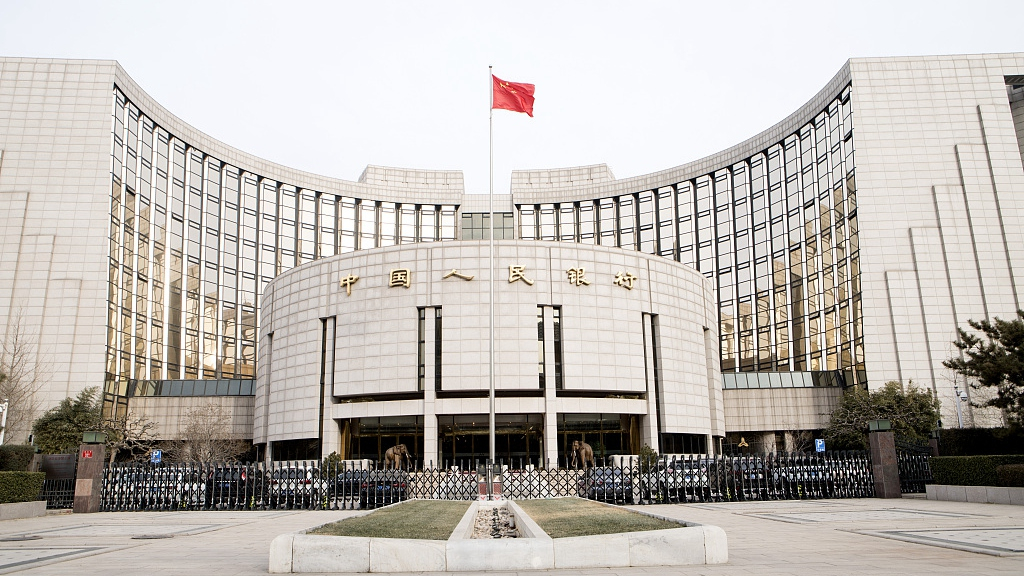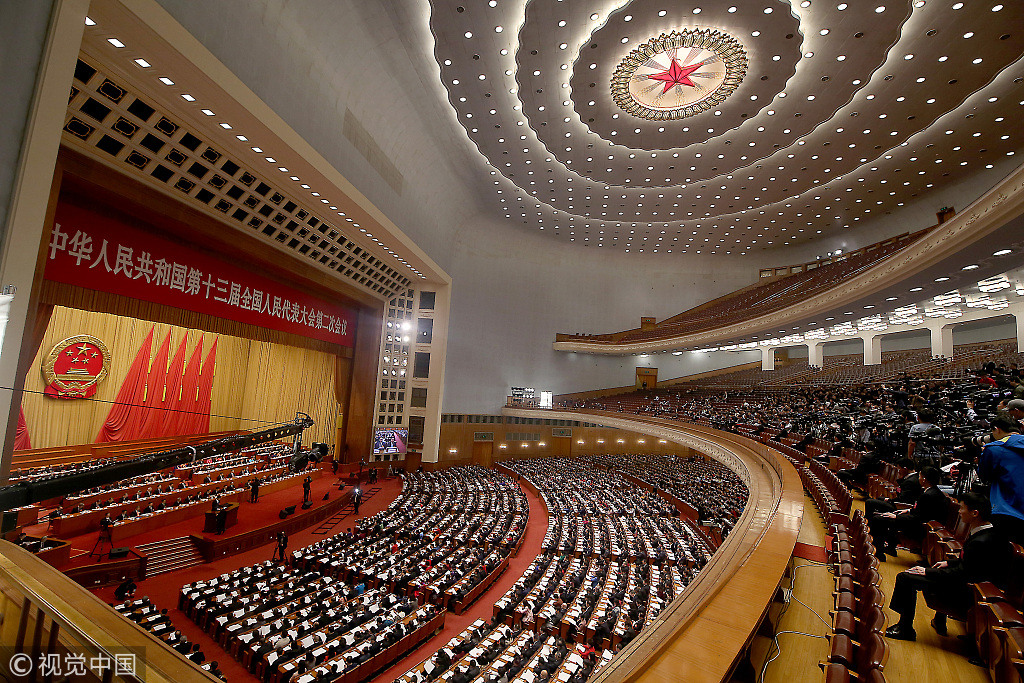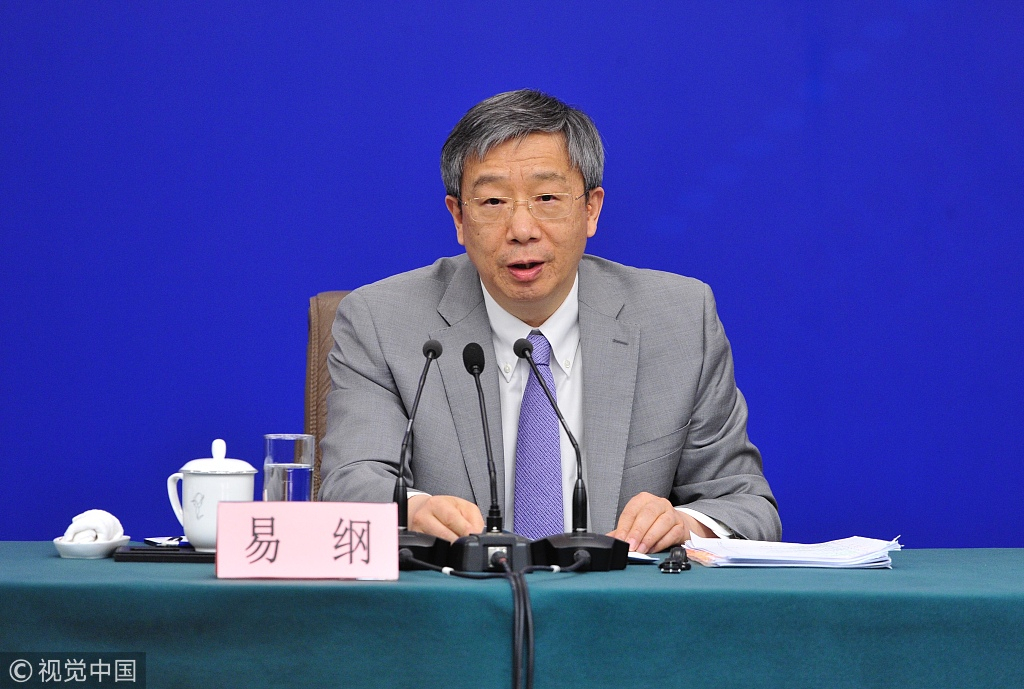
Opinion
12:19, 10-Mar-2019
Risk warnings demonstrate China’s commitment to financial reform
David Lee

Editor's Note: David Lee is a consultant and author based in Beijing who works on cross-cutting themes of energy, health, international politics and international development. The article reflects the author's opinion, and not necessarily the views of CGTN.
Anyone curious about how policymakers are directing the juggernaut of the world's second-biggest economy might as well be surprised by reading one of the most important policy declarations, i.e., the annual Government Work Report delivered by Chinese Premier Li Keqiang at the National People's Congress.
Casual observers would be startled just a little bit by the seriousness of the tone of the report, inlaid with such stark warnings as “we must be fully prepared for a tough struggle,” which would soon be picked up by Western media.
Why would the Chinese leadership use such strong language, given the apparently healthy growth rate above 6 percent, despite ongoing trade tensions?
Actually, such emphatic risk warning is nothing so special and has been part of the constant messaging conveyed over the years by the country's top leadership as well as technocrats who manage the country's banking, securities, insurance and wider financial sectors.
Using the opportunity of addressing the annual session of the National People's Congress, Premier Li Keqiang highlighted progress in “defusing major risks,” including stabilizing overall financial leverage. Looking forward, Li listed defusing financial risk as one of the country's top three uphill battles.

The ongoing 2nd Session of the National People's Congress is being held at the Great Hall of the People in Beijing, March 8, 2019. /VCG Photo
The ongoing 2nd Session of the National People's Congress is being held at the Great Hall of the People in Beijing, March 8, 2019. /VCG Photo
According to Li, the battle on the financial front should include structural deleveraging, addressing market volatility, tackling local government debts and dealing with any external disruption that might affect the domestic market.
Li's message has been consistent with a series of recent high-profile meetings that have gathered the country's top policymakers and most senior technocrats.
At one of the most important such meetings that took place at the CPC Central Party School, Chinese President Xi Jinping urged Party officials to “be on guard against black swans and keep watchful for gray rhinos,” with “black swans” meaning unforeseen disruptions and “gray rhinos” referring to neglected threats.
Propelled by the reform engine, China's economic juggernaut has sailed into deep waters where financial turbulence can do big damage. Therefore, to put the Chinese leadership's emphatic risk warnings in perspective, we must see China's ongoing effort on the financial front as part of the country's overall deepening reform process.
External pundits have long pointed to financial turbulence in various vicious forms that could wreck the juggernaut – high indebtedness, risky lending by shadow banking and implicit guarantees, among others.
China's leadership, by conveying stark warnings, have long highlighted the financial risks. Chinese technocrats have been working extremely hard on measures to contain, mitigate and defuse risks.

Yi Gang, the governor of the People's Bank of China, attends a news conference at the 13th National People's Congress (NPC) in Beijing, China, March 10, 2019. /VCG Photo
Yi Gang, the governor of the People's Bank of China, attends a news conference at the 13th National People's Congress (NPC) in Beijing, China, March 10, 2019. /VCG Photo
Backed by the strong commitment of the top leadership, Chinese technocrats actually have a big arsenal to do their job. Various tools have been used in various degrees of intensity and frequency over the past few years. More adaptive measures, building on past success stories and lessons learned, will surely take place in the coming years.
Again, backed by a strong commitment of the top leadership, local innovation will play a key role in defusing financial risks and generating meaningful policy measures adaptive to local conditions.
A case for reference in this regard is the launch of low-cost financing support in Jiangxi, Jiangsu, Zhejiang and Guangdong provinces for the private sector since last September, which helps contain shadow banking, alleviate unsustainable indebtedness and provide the real economy with a much-needed lifeline.
Looking ahead, key battles must be fought on the financial reform front, not only by defusing financial risks, but also by providing new mechanisms for the healthy, stable development of the overall Chinese economy.
In fact, measures to defuse financial risks are closely related to the supply-side financial reform efforts. I believe we'd see more well-coordinated moves by regulators across banking, insurance, securities sectors in the future.
(If you want to contribute and have specific expertise, please contact us opinions@cgtn.com)

SITEMAP
Copyright © 2018 CGTN. Beijing ICP prepared NO.16065310-3
Copyright © 2018 CGTN. Beijing ICP prepared NO.16065310-3